
-
From Space to Sites: Satellites in Support of China’s Heritage
To celebrate this year’s festival falling on June 13, the International Centre on Space Technologies for Natural and Cultural Heritage (HIST), the first UNESCO Category 2 Centre dedicated to the applications of space technologies for the conservation, management and sustainable development of UNESCO-designated sites, is preparing a photo show of several China’s well-known Cultural and Natural Heritage Sites.
Jun 12, 2020
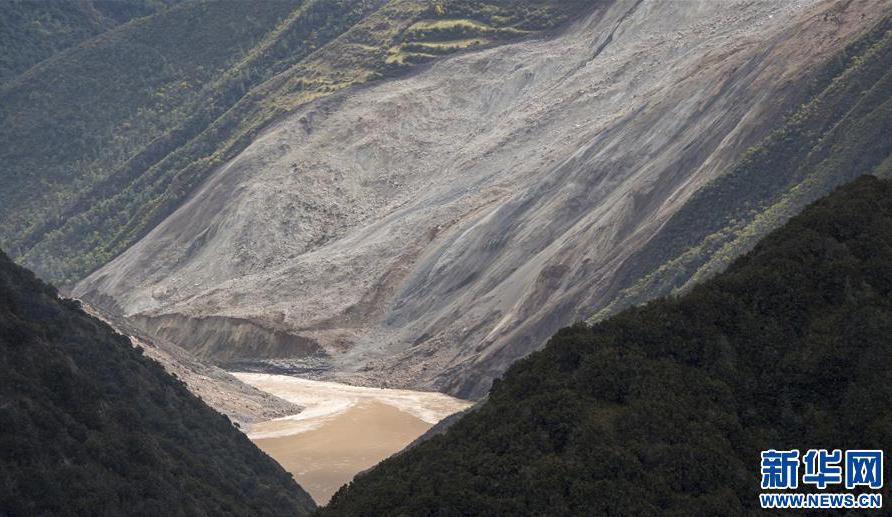
-
Efficient Remote Sensing Algorithm Proposed for Landslide Monitoring
BEIJING, June 3 (Xinhua) -- Chinese researchers have designed an improved remote sensing method for more efficient landslide monitoring.Synthetic aperture radar (SAR) remote sensing is a potential technique for long-term monitoring of landslide-prone areas.
Jun 03, 2020
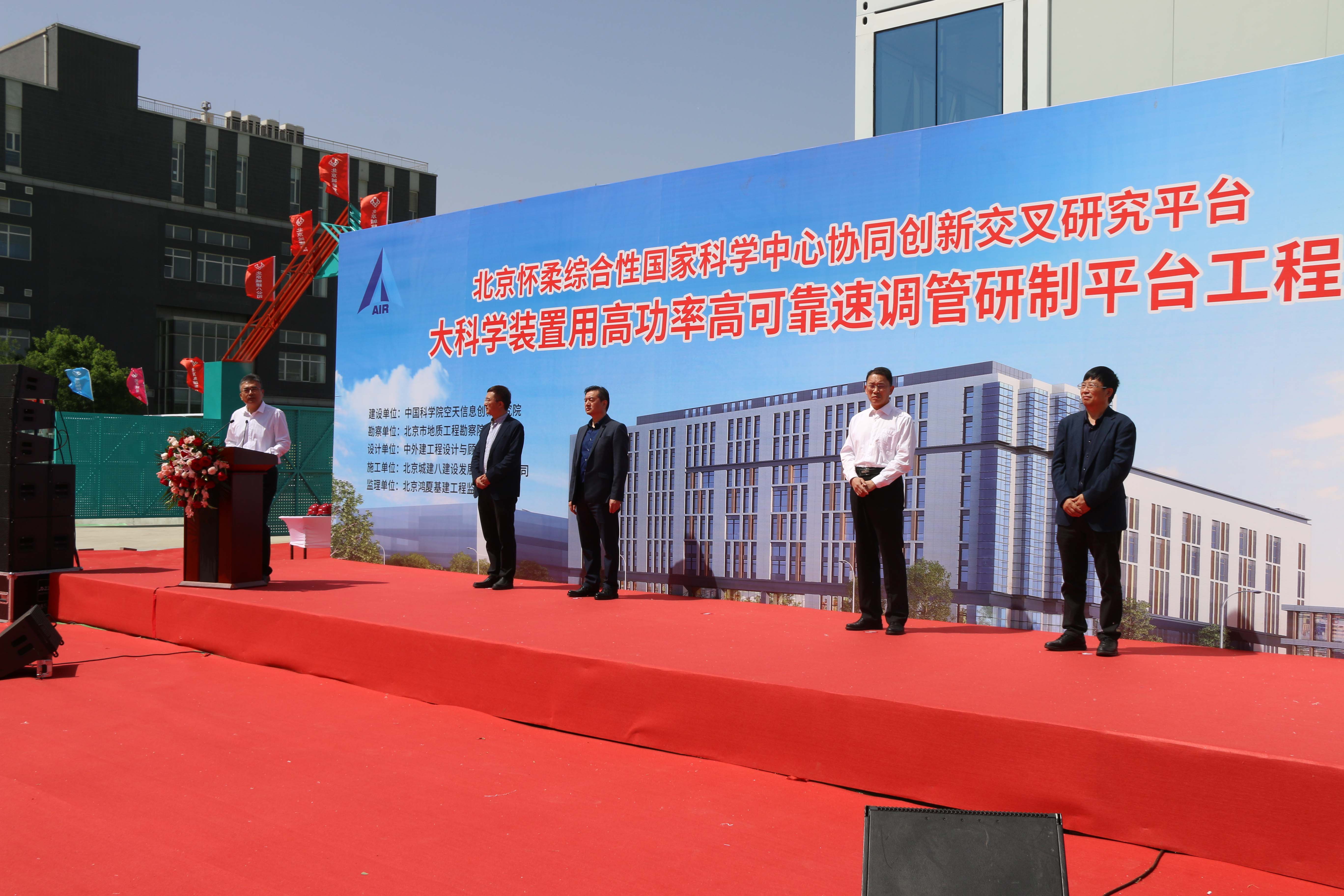
-
CAS Develops High Power Klystron to Energize Big Science Facilities
According to a news release from the Aerospace Information Research Institute (AIR) under the Chinese Academy of Sciences (CAS), the institute has started its R&D of high power klystrons tailored for big science facilities such as high-energy colliders, controllable thermonuclear fusion devices, synchrotron radiation sources, X-ray free electron lasers, and spallation neutron sources.
May 13, 2020
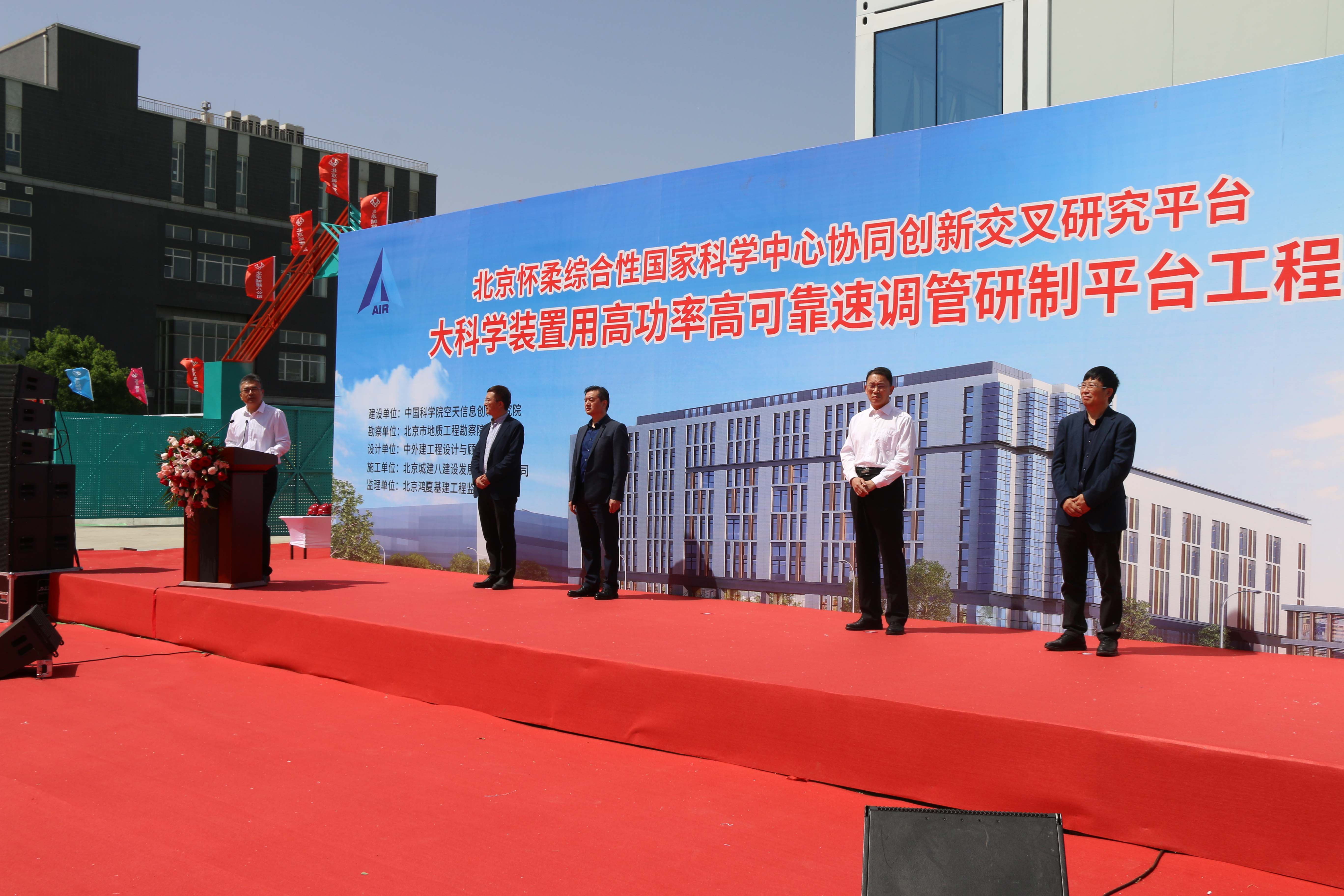
-
China to Develop High-power Klystrons for Big Science Projects
BEIJING, May 12 (Xinhua) -- A platform to develop high-power klystrons for big science projects has started construction in Beijing. High-power klystrons can produce high-energy microwaves, which is key for big science projects such as high-energy collider, controlled thermonuclear fusion facility, synchrotron radiation device, X-ray free electron laser facility, the China Spallation Neutron Source and the "Meridian Project."
May 13, 2020

-
China's First Monograph on Remote Sensing of Urban Green Space Published
Recently, the Remote Sensing of Urban Green Space was published by Science Press as China’s first monograph that comprehensively studies urban vegetation from the perspective of remote sensing.Authored by Prof. MENG Qingyan from the Aerospace Information Research Institute (AIR), Chinese Academy of Sciences (CAS), the book is a result of decade efforts of Prof. Meng and his team in the field of urban green space remote sensing since 2010.
May 08, 2020

-
Aerospace Information Science Museum Unveiled in Capital of Shandong Province
The Aerospace Information Science Museum which located in Licheng District, Jinan, the capital of Shandong Province started its trial operation this April. The Museum is jointly established by the Aerospace Information Research Institute (AIR), Chinese Academy of Sciences (CAS) together with the local government.The Aerospace Information Science Museum which located in Licheng District, Jinan, the capital of Shandong Province started its trial operation this April. The Museum is jointly established by the Aerospace Information Research Institute (AIR), Chinese Academy of Sciences (CAS) together with the local government.
May 08, 2020
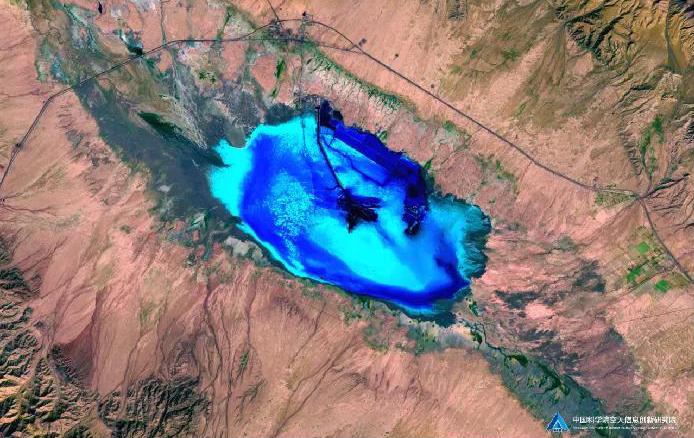
-
Satellite Images Mark 51th Earth Day
Scientists from the data processing division under the China Remote Sensing Satellite Ground Station (RSGS) present us satellite images to mark the day, providing new insight about the beauty of the planet, and telling stories of how ecological landscapes are shaped through human efforts.
Apr 23, 2020

-
Big Data Platforms for a Global Pandemic
In response to the global COVID-19 pandemic, a Chinese Academy of Sciences program known as Big Earth Data Science Engineering (CASEarth) began efforts to organize data and information towards curbing the outbreak. CASEarth coordinated a national effort to develop a global big data platform for coronavirus (http://nmdc.cn/nCov/en). This platform has been publishing and disseminating timely, authoritative scientific data and information concerning COVID-19, including detection methods, electron micrographs, genomes, scientific literature, results from ongoing scientific research, and a collection of virus strains from the National Pathogen Microbial Resource Bank. These resources are valuable for scientific studies on COVID-19 and for experts active in prevention and control of COVID-19 infections.
Apr 16, 2020
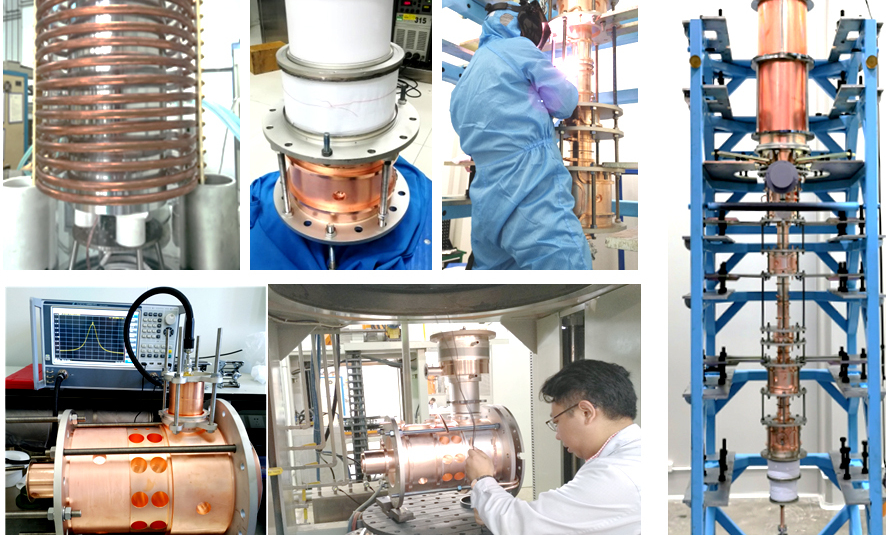
-
AIR Scientists Contribute to Klystron R&D for Circular Electron-Positron Collider
The 650 MHz klystron prototype for the Circular Electron-Positron Collider (CEPC) has been successfully developed in March 2020, featuring continuous wave (CW) and pulse output power of 400 kW and 800 kW respectively, and 62% efficiency, according to a news release from the Aerospace Information Research Institute (AIR).
Mar 20, 2020
-
Chinese Researchers Use Satellite Data to Monitor Desert Locusts
BEIJING, March 1 (Xinhua) -- Chinese researchers have used satellite data and meteorological data to monitor desert locusts and offer early warnings, according to the Chinese Academy of Sciences (CAS). Researchers from the Aerospace Information Research Institute of the CAS analyzed satellite data generated by China's Gaofen series satellites, Landsat from the United States, and European Space Agency's Sentinel.
Mar 02, 2020
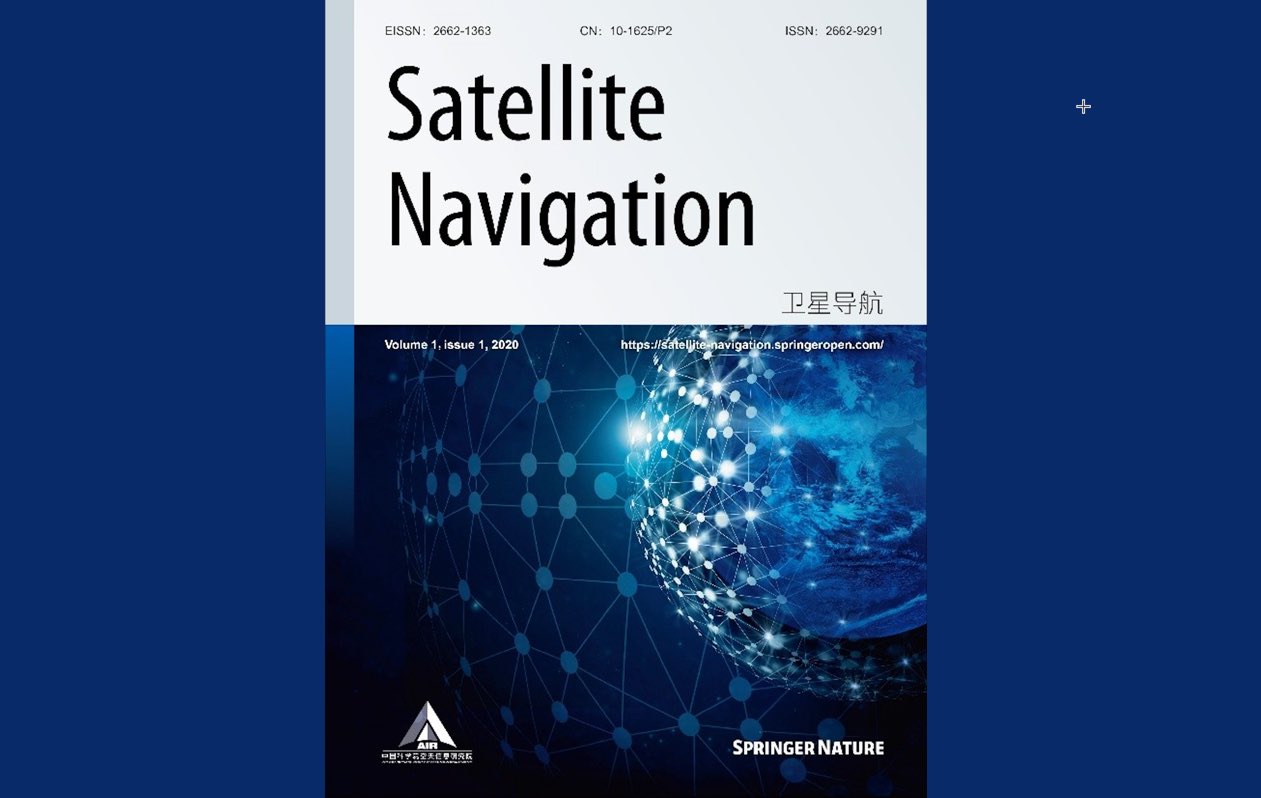
-
The Journal Satellite Navigation Published
The Journal Satellite Navigation, co-sponsored by the Aerospace Information Research Institute under the Chinese Academy of Sciences and Springer Nature, was officially published in English on 20 January 2020. The peer-reviewed journal is online in an open-access format, marking the first international satellite navigation journal that has ever been published in China.
Jan 21, 2020
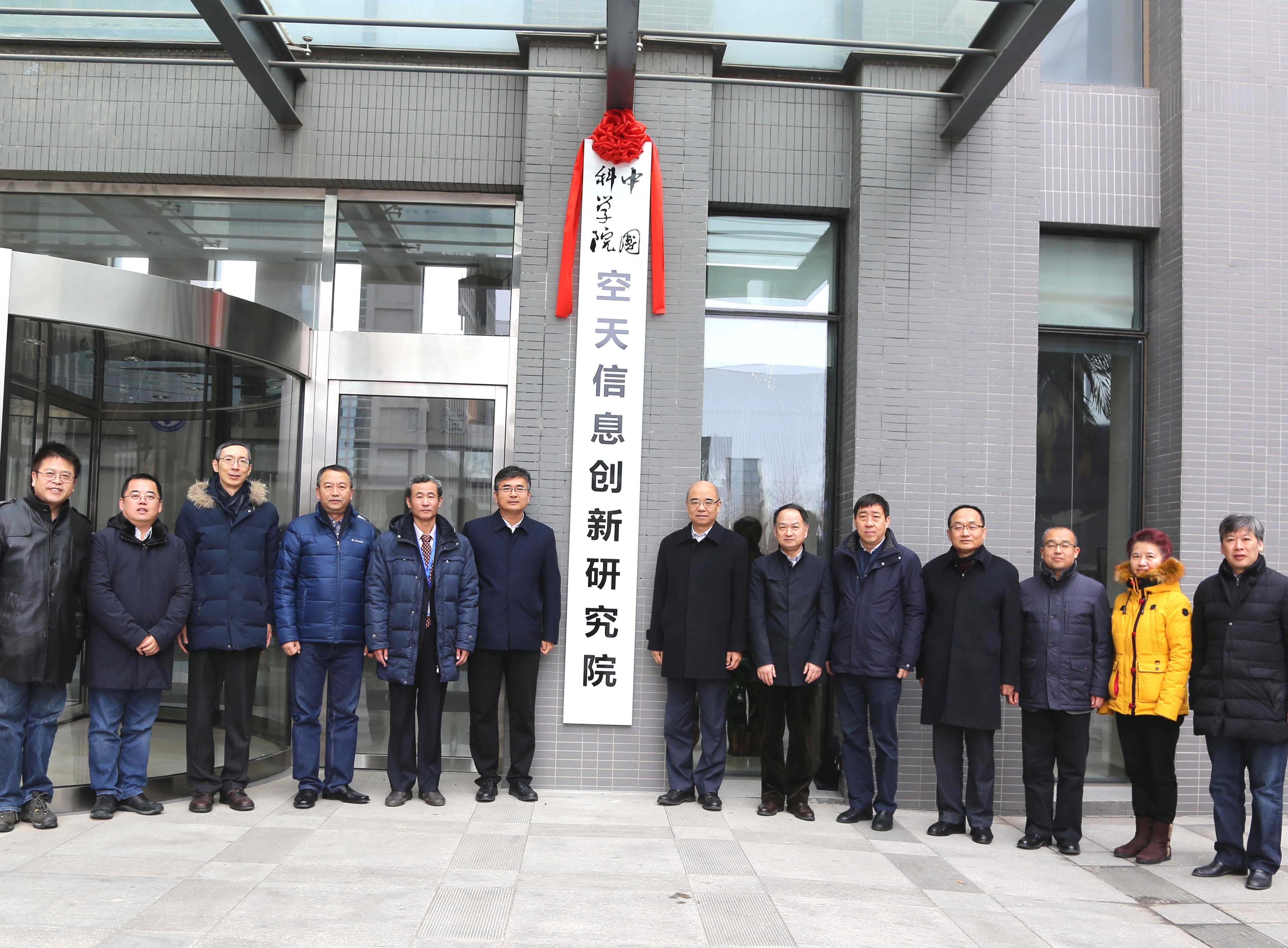
-
Council of AIR Established
The Inaugural Meeting and the First Plenary Meeting of the First Council of Aerospace Information Research Institute (AIR) under the Chinese Academy of Sciences (CAS) was held on January 7, 2020 in Beijing. XIANGLI Bin, Vice President of CAS and Director of AIR Council, together with WU Yirong, Director-General of AIR and Deputy Director of AIR Council, jointly unveiled the nameplate of AIR. YU Yingjie, Director of the Bureau of Major R&D Programs under CAS announced the approval document on the establishment of AIR. The unveiling ceremony was presided over by CAI Rong, Deputy Director of AIR.
Jan 17, 2020
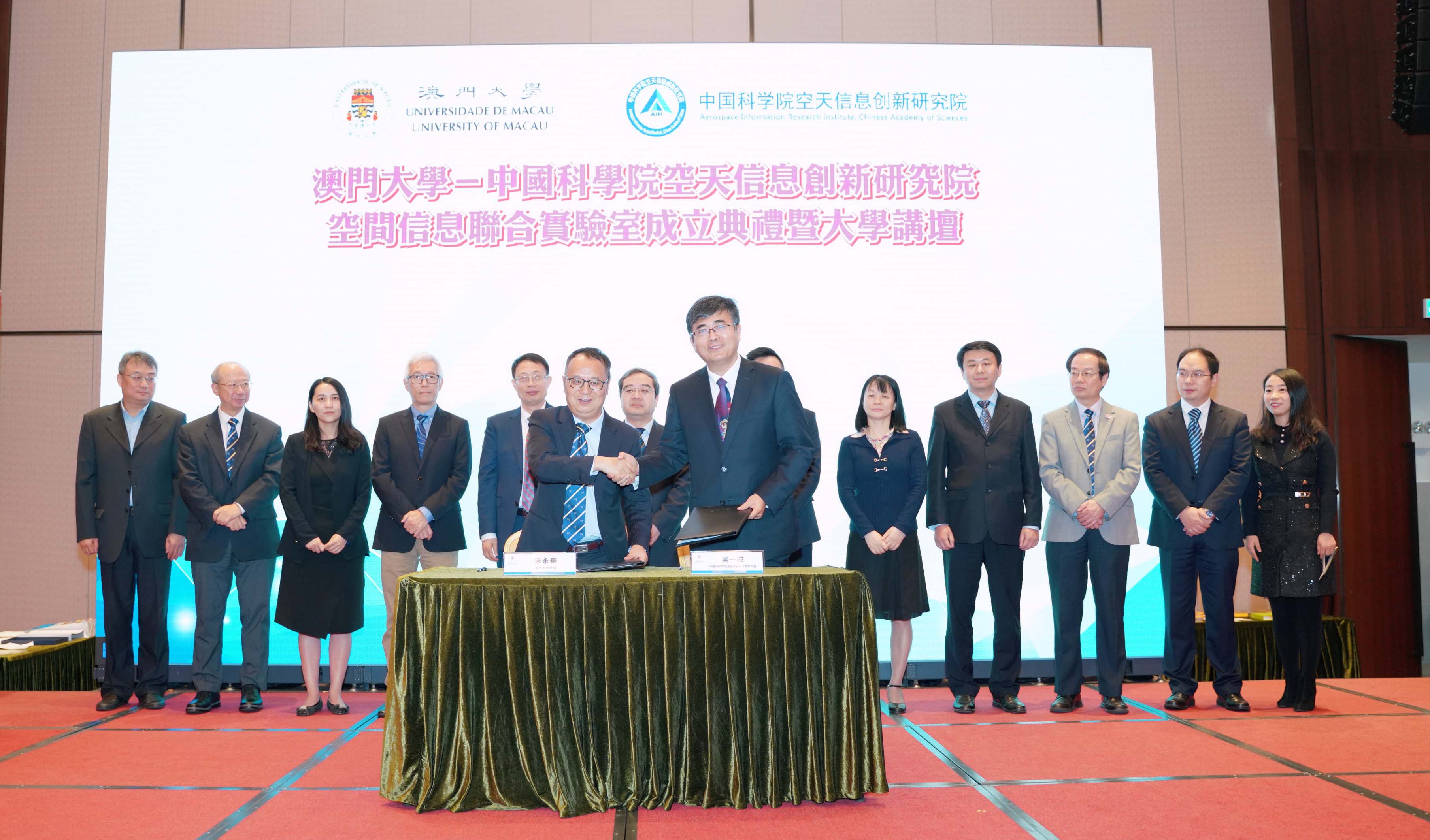
-
AIR, University of Macau Establish Joint Lab of Aerospace Information
The Joint Laboratory of Aerospace Information was established by the Aerospace Information Research Institute (AIR) under the Chinese Academy of Sciences (CAS) together with the University of Macau (UM) on January 9 in Macao. WU Yirong, Director General of AIR, and Song Yonghua, rector of UM, signed a cooperation agreement on behalf of both institutes.
Jan 13, 2020
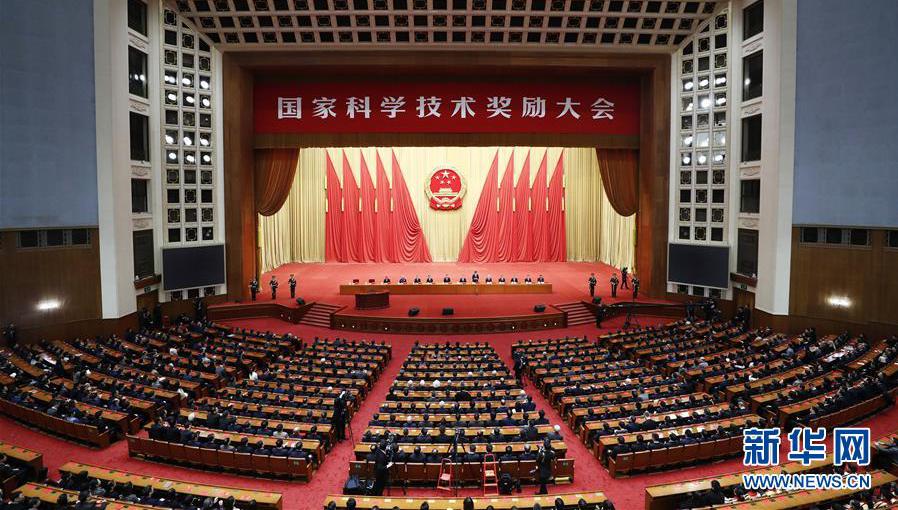
-
AIR Research Results Win 2019 National Science and Technology Award
At the annual ceremony of the National Science and Technology Award held on January 10, 2020 in Beijing, the Aerospace Information Research Institute (AIR) under the Chinese Academy of Sciences (CAS) won three prizes for the National Science and Technology Progress Award in 2019,including a first and a second prize as the first research unit, and a second prize as the second research unit.
Jan 12, 2020
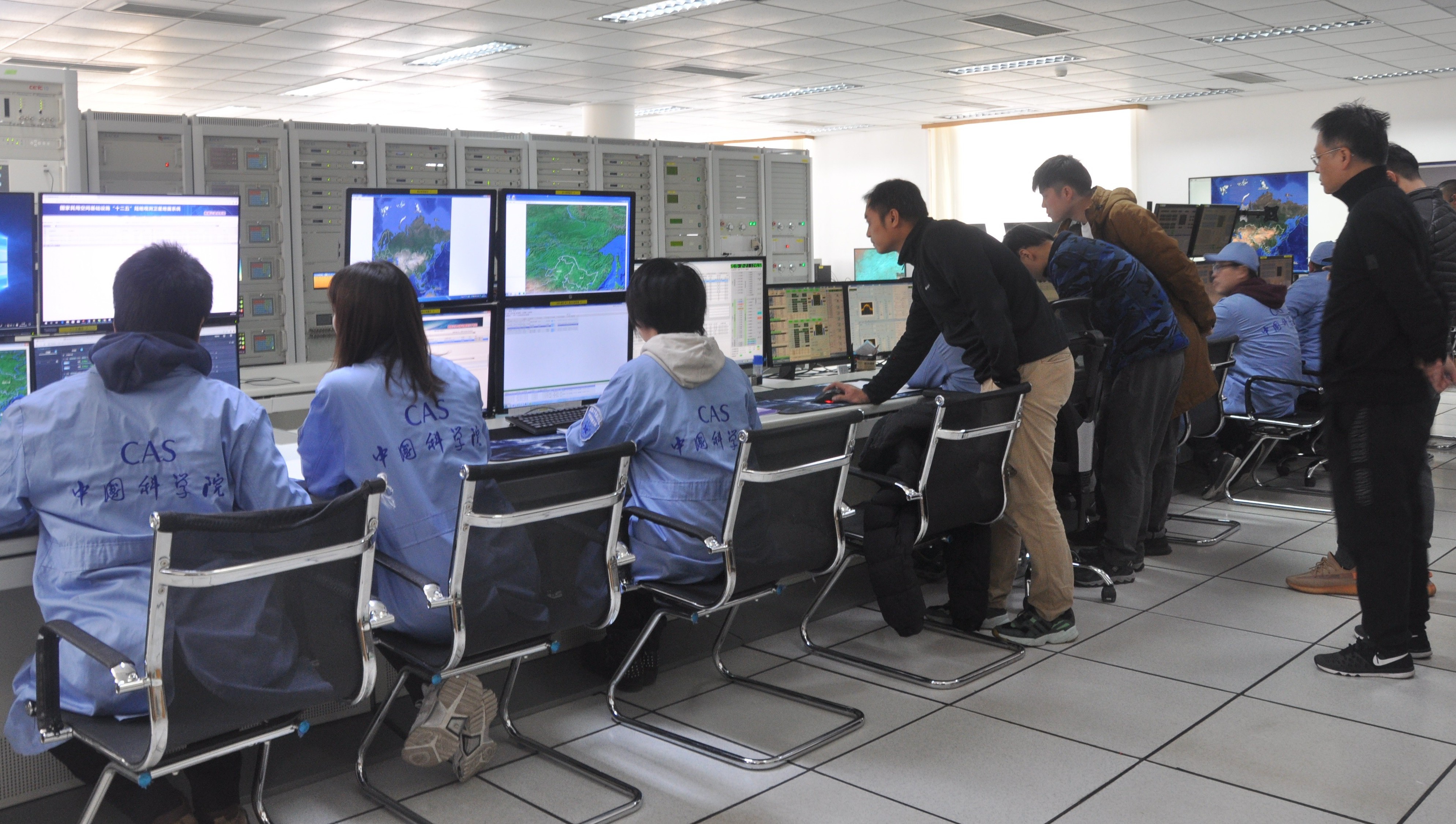
-
China Remote Sensing Satellite Ground Station Confirms Data Reception from New China-Brazil Satellite
At 11:43 on December 21, the Miyun Station of the China Remote Sensing Satellite Ground Station (RSGS), a mega research facility housed by the Aerospace Information Research Institute (AIR) successfully tracked and well received the downlink data from the newly launched China-Brazil Earth Resource Satellite (CBERS)-04A.
Dec 23, 2019



News & Events